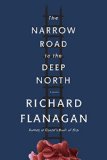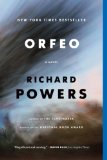Summary | Excerpt | Reviews | Beyond the book | Read-Alikes | Genres & Themes | Author Bio

A novel of fated meetings, grand battles, and riveting drama, and in its seamless fusion of the epic and the intimate, it achieves a truly singular beauty that deserves to be compared to the classic Chinese novels that inspired it.
In the turbulent final years of the Yuan Dynasty, Wang Meng is a low-level bureaucrat, employed by the government of Mongol conquerors established by the Kublai Khan. Though he wonders about his own complicity wit this regime - the Mongols, after all, are invaders - he prefers not to dwell on his official duties, choosing instead to live the life of the mind.
Wang is an extraordinarily gifted artist. His paintings are at once delicate and confident; in them, one can see the wind blowing through the trees, the water rushing through rocky valleys, the infinite expanse of China's natural beauty.
But this is not a time for sitting still, and as The Ten Thousand Things unfolds, we follow Wang as he travels through an empire in turmoil. In his wanderings, he encounters, among many memorable characters, other master painters of the period, including the austere eccentric Ni Zan, a fierce female warrior known as the White Tigress who will recruit him as a military strategist, and an ugly young Buddhist monk who rises from beggary to extraordinary heights.
The Ten Thousand Things is rich with exquisite observations, and John Spurling endows every description, every detail, with the precision and depth that the real-life Wang Meng brought to his painting. But it is also a novel of fated meetings, grand battles, and riveting drama, and in its seamless fusion of the epic and the intimate, it achieves a truly singular beauty. A novel that deserves to be compared to the classic Chinese novels that inspired it, The Ten Thousand Things is nothing short of a literary event.
It is striking that a novel set hundreds of years ago in China can have lessons that resonate even in our times. Spurling has us contemplate our own lives; revisit what values we hold dear over others. He makes us consider the role of duty and passion and what we would do if the two don’t align. “The Ten Thousand Things,” after all, never fade away. They take different avatars and ring with varying resonance for different people through the generations...continued
Full Review
 (819 words)
(819 words)
(Reviewed by Poornima Apte).


If you liked The Ten Thousand Things, try these:

The Narrow Road to the Deep North
by Richard Flanagan
Published 2015
Moving deftly from a Japanese POW camp to contemporary Australia, this savagely beautiful novel tells a story of love, death, and family, exploring the many forms of good and evil, war and truth, guilt and transcendence.

by Richard Powers
Published 2014
The National Book Award–winning author of The Echo Maker delivers his most emotionally charged novel to date, inspired by the myth of Orpheus.
The low brow and the high brow
Click Here to find out who said this, as well as discovering other famous literary quotes!